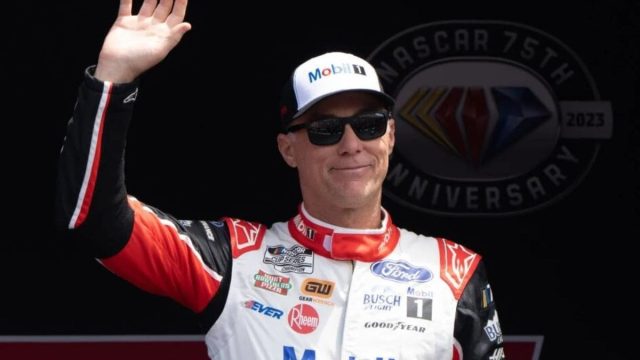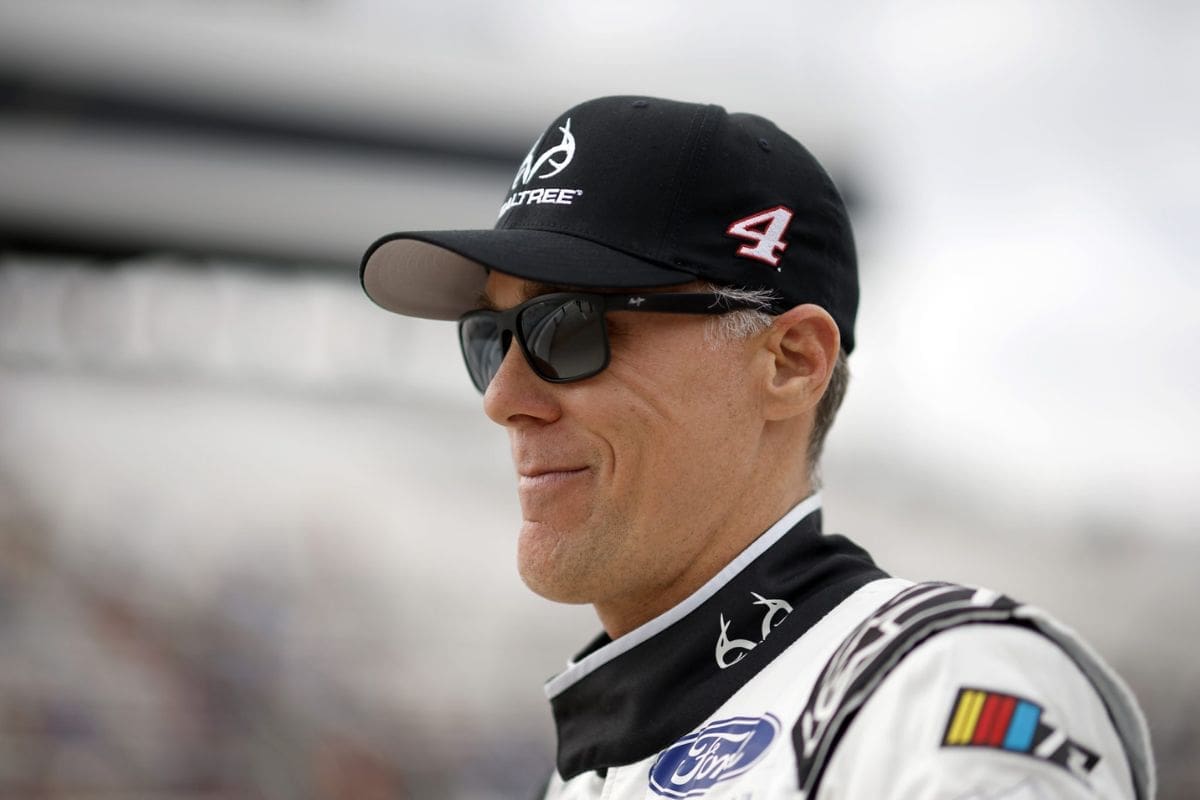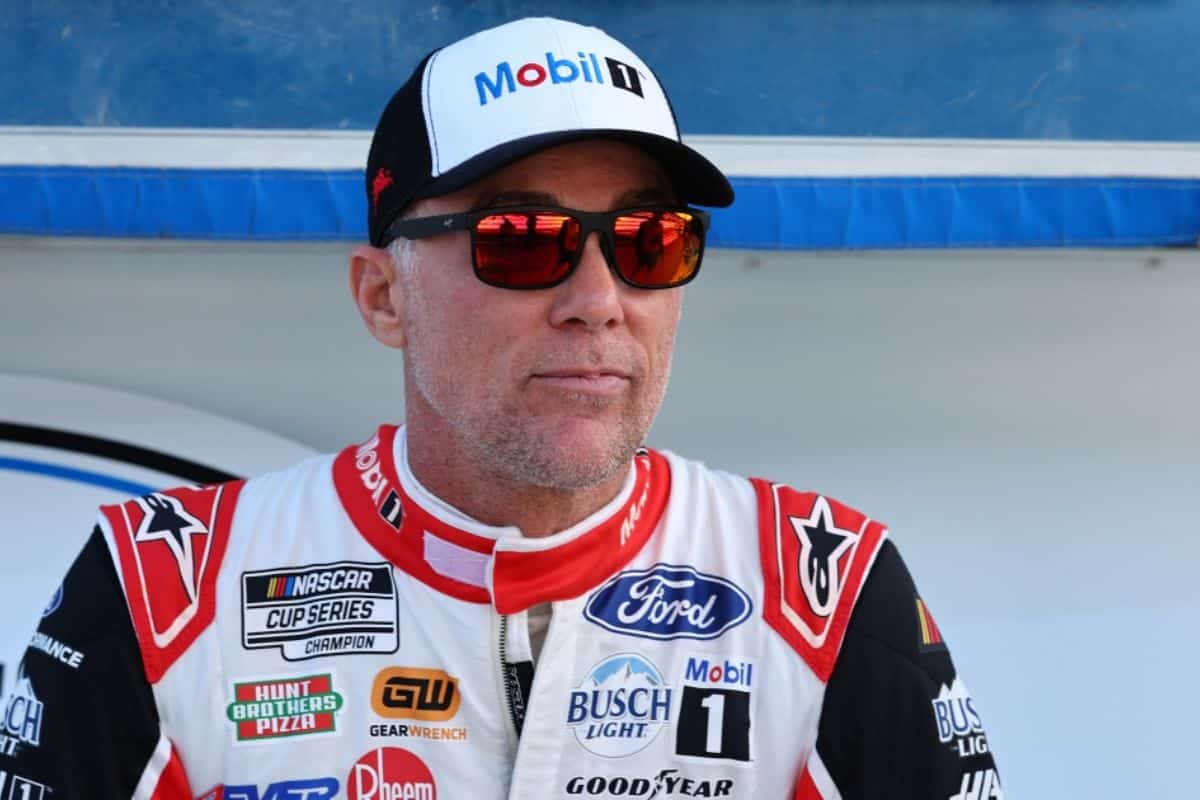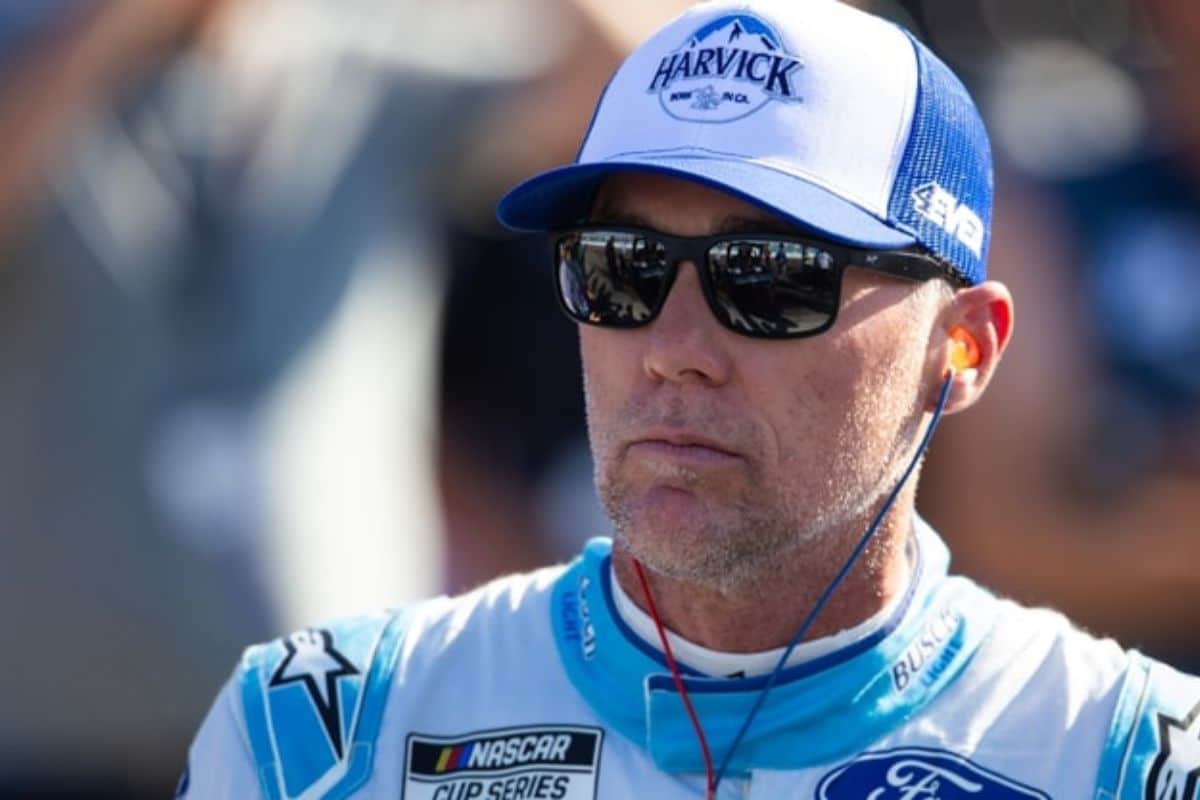Kevin Harvick Defends NASCAR: Kevin Harvick‘s defense of NASCAR’s contentious decision to prolong races in Nashville has sparked a discussion within the racing community. Harvick asserts that extending races improves fan involvement and highlights the thrill of green flag finishes, which are essential for upholding the sport’s appeal. He emphasizes the need to balance traditional racing principles with the changing requirements of contemporary entertainment, showing the unpredictability and stamina that make NASCAR races captivating. This position prompts significant inquiries about the future trajectory of the sport and the potential consequences for its stakeholders. What are the thoughts of other drivers and fans regarding this shift?
Key Highlights
- Kevin Harvick advocates for race extensions to enhance fan engagement and excitement.
- Harvick supports green flag finishes for their unpredictability and added drama.
- He acknowledges the balance between maintaining traditional racing values and modern entertainment demands.
- Harvick believes extended races contribute to the sport’s overall excitement and unpredictability.
- He argues that prolonged races provide opportunities for comebacks, benefiting fans and the sport.
Overview of the Race
The Nashville Superspeedway race was an endurance trial for both drivers and teams, marked by a series of unpredictable restarts and an extended distance that pushed the limits of strategy and stamina. The event was characterized by a relentless interplay of yellow and green flags, creating a dynamic and often chaotic racing environment.
The race, originally scheduled for a fixed number of laps, stretched an extra 31 laps due to numerous cautions, totaling 15 throughout the day.
Each restart presented a fresh set of challenges, often disrupting the rhythm and strategy meticulously planned by teams. Leaders who seemed poised for victory saw their prospects evaporate with every successive caution. Such unpredictability not only tested the physical endurance of drivers but also placed immense pressure on pit crews and strategists to adapt in real-time.
Joey Logano and his Team Penske crew ultimately emerged victorious, a proof of their resilience and ability to navigate the tumultuous conditions effectively. Their success underscored the importance of adaptability and mental fortitude in such high-stakes scenarios.
The race’s extension beyond its scheduled distance amplified the physical and mental demands on all participants, transforming the event into a true trial of endurance. Veteran driver Kevin Harvick, known for his candid insights, reflected on the race’s unique challenges, acknowledging the volatile nature of the competition.
The Nashville Superspeedway race exemplified the unpredictable essence of motorsport, where the confluence of skill, strategy, and adaptability determines the ultimate victor. This event, with its numerous cautions and extended distance, will be remembered as a definitive example of racing’s inherent unpredictability and the necessity for teams to remain agile and composed under pressure.
The Never-Ending Race
As the race stretched beyond its scheduled distance, the relentless series of restarts transformed the Nashville Superspeedway event into what many spectators dubbed ‘the never-ending race’. The sequence of events turned the competition into a spectacle of high drama and unpredictability, culminating in a surprising victory that left fans and analysts alike in disbelief.
The persistent restarts were triggered by a series of incidents that disrupted the flow of the race. Denny Hamlin, who had seemed poised for victory, was ultimately undone by a miscalculation in fuel management. This unexpected twist opened the door for a Ford to seize the checkered flag, a development that seemed improbable until it unfolded before the audience’s eyes.
Kyle Larson’s collision with another driver marked a significant moment, further intensifying the race’s already high stakes. These elements combined to create a race that was as much about endurance and strategy as it was about speed.
Kevin Harvick’s Perspective
In his ‘Happy Hour’ podcast, Kevin Harvick highlighted the importance of prioritizing fan engagement by advocating for race extensions and green flag finishes. He asserted that such measures amplify the excitement and unpredictability inherent in NASCAR events. Harvick emphasized that NASCAR, at its core, is an entertainment business and, therefore, should aim to deliver thrilling outcomes to its races, even if this requires extending them beyond their originally scheduled lengths. He argued that the spectacle of a race reaching its peak under green flag conditions is more enthralling for fans compared to a finish under caution.
Harvick’s viewpoint is that while the traditionalist in him might prefer races to end at their predetermined distances regardless of the circumstances, the need to entertain and maintain fan interest should take precedence. He pointed to Joey Logano’s victory, which was facilitated by the extended race and strategic fuel management, as an example of how such situations can inject unexpected drama and excitement into the sport. This unpredictability, according to Harvick, is what keeps fans on the edge of their seats and coming back for more.
“I think part of this is we are in the entertainment business.”
“I think the traditional me would tell you that I want the race to end at the right distance, whether it’s green or caution but I like the show.” – Harvick
Moreover, Harvick acknowledged the inherent tension between maintaining the sport’s traditional values and evolving it to meet modern entertainment demands. He suggested that leaning towards green flag finishes aligns with the broader goal of making NASCAR events more captivating and memorable for the audience. By embracing these thrilling outcomes, NASCAR can enrich its appeal and deliver the kind of exhilarating experiences that fans crave.
Drivers After the Race
Analyzing the racers’ reactions after the Nashville weekend reveals a stark contrast between those who benefited from the overtime rules and those who found their race strategies upended by the extended laps.
Joey Logano, the eventual winner, praised his team’s preparation and execution, particularly highlighting the role of his fueler, Nick Hensley, and the engine department at Roush Yates. Logano’s satisfaction was evident as he attributed their victory to a combination of teamwork, strategic fuel management, and bold decision-making.
“A lot of teamwork there. You have to give a lot of credit to our fueler, Nick Hensley, our engine department with Roush Yates building obviously some engines that could also manage fuel really well, and some guts – a lot of cajones made it happen.” – Logano
Conversely, Denny Hamlin, who was leading in the final laps before finishing 12th, expressed frustration over the dramatic shift in his race outcome. Hamlin detailed how his crew chief, Chris Gabehart, monitored fuel pressure closely, making the difficult call to keep running under caution. Despite their best efforts, Hamlin’s car ran out of fuel, leaving him disappointed but resigned to the unpredictability of multiple green-white-checker finishes. His candid reflection underscored the delicate balance teams must maintain between aggressive racing and resource management.
“We ran out under caution. (Chris Gabehart, crew chief) was monitoring fuel pressure. I let him know what the fuel pressure was. We were fine, just running out of gas and we did it under caution. It was the right call. I was going down the pitlane there out of gas. I’m surprised we lasted that many green-white-checkers honestly. Certainly, stinks being 15 seconds from a win at the end then 10 seconds from a win, and then to finish 12th. It’s just part of it.” – Hamlin
Kyle Larson also faced challenges in the chaotic final stages, finishing just inside the top five. Larson described the closing laps as tumultuous, with several cars, including his own, struggling with fuel shortages. His strategy involved attempting to maneuver Denny Hamlin off the bottom line to gain clean air, a tactic that ultimately fell short as the race’s unpredictable nature took its toll.
“Just a lot of craziness there at the end. There were a lot of cars short on fuel and we were one of them. Just a lot of mess. On the first restart, I was just trying to get Denny (Hamlin) washed off the bottom so that I could get some clean air and give myself an opportunity to win.” – Larson
The Debate Over Extended Races
The recent controversy surrounding NASCAR’s prolonged races has ignited a heated debate among drivers, teams, and fans, each grappling with the implications of these unforeseeable finishes on both competition and championship standings. The prolonged races, which often require extra laps due to late-race cautions, have introduced a level of uncertainty that can dramatically alter the outcome of events. For championship contenders, this unpredictability can be a double-edged sword—offering opportunities for dramatic comebacks but also posing a risk of misfortune that can derail their playoff hopes.
Kevin Harvick has been vocal about this dilemma. While he acknowledges the frustration of drivers whose championship aspirations are thwarted by misfortunes in these extra laps, he also emphasizes the excitement and drama these moments bring to the sport. Harvick’s perspective sheds light on the delicate balance NASCAR must maintain between preserving competitive integrity and delivering thrilling spectacles that captivate audiences.
Fans are undeniably drawn to the heightened tension and unpredictability of prolonged races, which often translate to nail-biting finishes. However, for drivers and teams, the challenge lies in navigating these unforeseeable elements while aiming for a level playing field. The ever-changing fuel strategies and the necessity to adapt on the fly add layers of complexity to each race, making every lap a critical factor in the pursuit of victory.
News in Brief: Kevin Harvick Defends NASCAR
The defense of NASCAR’s decision to extend races, as articulated by Kevin Harvick, underscores a commitment to enhancing fan engagement and preserving the sport’s dynamic nature. By balancing traditional values with modern entertainment demands, extended races introduce unpredictability and endurance challenges, enriching the spectator experience.
This perspective highlights the evolving nature of NASCAR competition and acknowledges the complexity and debates that such decisions inevitably fuel within the racing community.
ALSO READ: Kevin Harvick Condemns NASCAR’s Wet Tire Chaos in Fiery Rant



